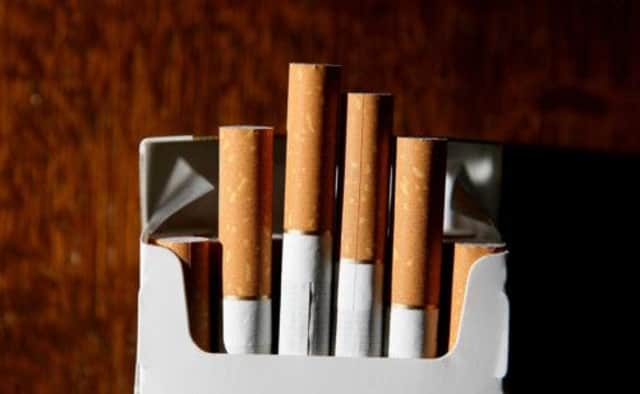Stopping smoking makes sense for wallet and health


As we approach the festive season, everyone is looking for ways to put a bit of extra cash aside – but what are the hard figures in pounds and pence that go up in smoke when tobacco users light up?
They add up to millions.
The Scottish Government is currently weighing up its budget options and we’d suggest that investment in health promotion work around tobacco use will reap the rewards in terms of the pound in smokers’ pockets.
Advertisement
Hide AdAdvertisement
Hide AdWe’ve done our own calculations, by estimating spending on tobacco by the poorest people in our society. They live in the 20 per cent most deprived areas in Scotland, as measured by the Scottish Index of Multiple Deprivation.
Adults in these areas are considerably more likely than those in the rest of the country to say that they are current smokers.
Around one in ten adults living in the 10 per cent least deprived areas of Scotland smoke, compared to around two-fifths of adults in the most deprived areas.
Those most likely to smoke are people who are unemployed and looking for work, unable to work due to short-term ill-health or are permanently sick or disabled.
Figures from 2011 show there are about a third of a million adult smokers living in the 20 per cent poorest areas of the nation.
Financial benefits
So what would be the financial benefits of a small drop in smoking prevalence among them?
We took the goal of a one percentage point fall as an example – going from 38 per cent of people smoking in those areas in 2011 to 37 per cent the following year.
In 2011, there were over 300,000 smokers in the 20 per cent most deprived areas, with approximately two-thirds of them using filter cigarettes and the rest hand-rolled tobacco (HRT).
Advertisement
Hide AdAdvertisement
Hide AdThree-quarters of women smokers prefer filter to roll-your-own, compared with about 60 per cent of men.
In Scotland, we know that the average number of cigarettes smoked a day is about 15 in the most disadvantaged 20 per cent of areas – more than in the best-off areas where the average is under 13 cigarettes per day.
But not all are bought at full price.
Black market
There is, of course, a proportion of the tobacco that comes from the black market. This illicit product can prove too tempting to ignore if you are strapped for cash and addicted to nicotine.
Her Majesty’s Revenue and Customs provide estimates for the UK. Because the lure of illicit tobacco might be higher in poorer areas, we used HMRC’s upper estimates and assumed about 12 per cent of filter cigarettes and more than 40 per cent of HRT were bought on the black market. We did our calculations using 2011 prices for legal cigarettes and assuming that illicit tobacco cost about half of that. Punch all of that into the calculator and what do you get? Some pretty startling figures for such a small reduction in smoking.
Our one percentage point drop in smoking prevalence means about 9,000 fewer smokers in those poorest areas.
Each year, smokers of legal cigarettes from those communities would each save on average over £1,800 by quitting, while roll-your-own devotees would have an extra £1,000 to spend on something else.
The illicit tobacco buyers would save about half of that.
That’s a collective saving of about £35,000 per day on their cigarettes and hand-rolled tobacco for everyone in those areas who quit.
Each day, the 5,000 legal cigarette purchasers would be better off in total by over £26,000 while the 1,700 legal HRT smokers would have a combined £5,000 extra in their collective pockets.
Advertisement
Hide AdAdvertisement
Hide AdThe illicit users would save about £3,500 altogether. That adds up to an annual saving of about £13 million for everybody. Quite a collective benefit to those people in the poorest 20 per cent of society from just a one percentage point reduction in smoking rates.
Price
Incidentally, the reason we don’t just reduce the tax on tobacco is because we know the smoking rate is strongly influenced by price, so cheaper cigarettes would mean more smokers, lost economic benefits and greater health problems.
People should also be aware that around half of the price increase in recent years has gone to the tobacco companies rather than the government.
So, just a small drop in smoking rates can deliver £13m directly into the collective pockets of those in the poorest 20 per cent of society.
That should bring a little Christmas cheer at a time when growing numbers are turning to food banks or payday loan companies and government is wondering how it can deliver on targets to reduce poverty and health inequalities.
• Sheila Duffy is Chief Executive of ASH Scotland www.ashscotland.org.uk